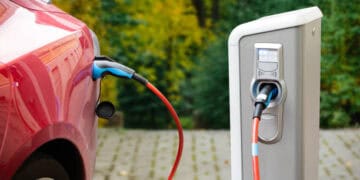According to a Wall Street Journal report, the Biden administration is currently deliberating over potential changes to the tariffs on certain Chinese goods, including electric vehicles (EVs). This information comes from sources who are knowledgeable about the ongoing discussions. China has seen a significant increase in vehicle exports in recent years. This growth is attributed to overcapacity and a slowdown in domestic demand within China, which is the largest auto market globally.
China Merchants Bank International forecasts a 25% increase in Chinese vehicle exports next year, reaching approximately 5.3 million units. This report comes after a bipartisan group of U.S. lawmakers last month urged the administration to consider higher tariffs on Chinese-made vehicles. They also sought an investigation into methods to restrict Chinese firms from exporting to the United States via Mexico. Currently, Chinese automobiles are subjected to a 25% tariff, a policy initiated during the tenure of former President Donald Trump and continued under President Biden.
The U.S. government is also reevaluating the Trump-era tariffs on about $300 billion worth of Chinese goods. The aim is to conclude a comprehensive review of these tariffs early next year. In addition to contemplating increases on clean-energy products, the Biden administration is considering reducing tariffs on certain Chinese consumer goods deemed non-strategic. The issue also affects foreign automakers like Tesla, which utilizes China as a significant export base. U.S. lawmakers have previously expressed concerns that current import tariffs are not adequately curbing the influx of Chinese-made vehicles into the U.S. market.
In response to these developments, a spokesperson for China’s foreign ministry stated at a daily briefing that China will closely monitor the situation and take necessary steps to protect its legitimate interests. Requests for comments from the U.S. Trade Representative and the National Security Council were not immediately answered, according to Reuters.
Discover comprehensive supply chain report news insights at The Supply Chain Report. For international trade resources, visit ADAMftd.com.
#BidenAdministration #Tariffs #ChineseGoods #ElectricVehicles #ChinaExports #VehicleExports #ChinaMerchantsBank #USLawmakers #TradePolicy #CleanEnergy #Tesla #AutoMarket #GlobalTrade #EconomicPolicy #TradeNegotiations #ChinaTrade #USChinaRelations













